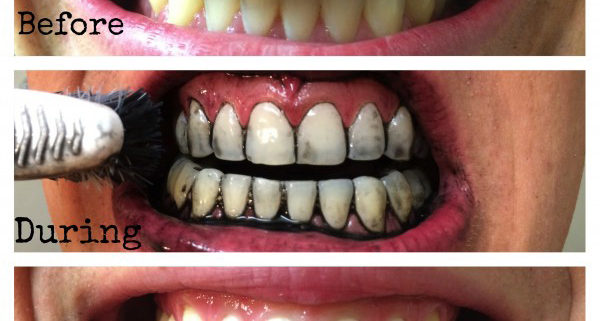How does activated charcoal whiten teeth
Activated charcoal is a most commonly used as a treatment for overdose or poisoning. It’s an oral treatment that binds to toxins and drugs that have been ingested. It will absorb many different things, and can be even used on dogs. Some people use it to treat hangovers, alleviate bloating and gas, filtering water, cleaning mold, and tooth whitening. But charcoal is black!
How does activated charcoal whiten teeth?
Activated charcoal whitens teeth the same way it treats toxins – it’s absorbent! When activated charcoal is applied to the teeth, it absorbs plaque and all of the microscopic stain causing bits. It even alters the pH balance of the mouth, which assists in preventing cavities, gum disease, and bad breath. If you have crowns, veneers, or caps that are porcelain, the charcoal can stain them, so use with caution.
Using activated charcoal to whiten teeth:
If you look anywhere online, you’ll read something like: It’s very easy to do, simply wet a toothbrush, dip it into powdered charcoal, and brush away! After 2-4 minutes, rinse your mouth thoroughly. It’s that easy! Charcoal doesn’t taste great, but to be fair, most tooth whitening options don’t. You don’t have to do it every day, 2 or 3 times a week is sufficient.
Activated charcoal sounds great, but until we know more about it, best to use teeth whitening measures that have been rigorously tested, and approved by dentists. If you do choose to use activated charcoal to whiten your teeth, there are some things you should keep in mind:
- Everyone’s teeth are different. What works for one person may not work for another due to genetics and overall dental health.
- Charcoal may be abrasive. Medical professionals are not yet certain of the effect the charcoal has on teeth, but it could lead to deterioration of the enamel and tooth erosion – which opens the door to decay.
- If use of activated charcoal hurts at all – stop immediately, you may be causing damage to your teeth.
- Dentists don’t know how effective the charcoal is, so it may leave your teeth looking blotchy (especially if it’s not applied evenly).
Teeth are alive. They have soft tissue (called dentin) and roots, that are protected by enamel. And enamel does not grow back. If the enamel becomes too damaged, it can no longer safely protect the dentin inside, and the tooth will need to be covered up with restoration. If you are looking for a whiter smile, discuss safer options with your dentist.



